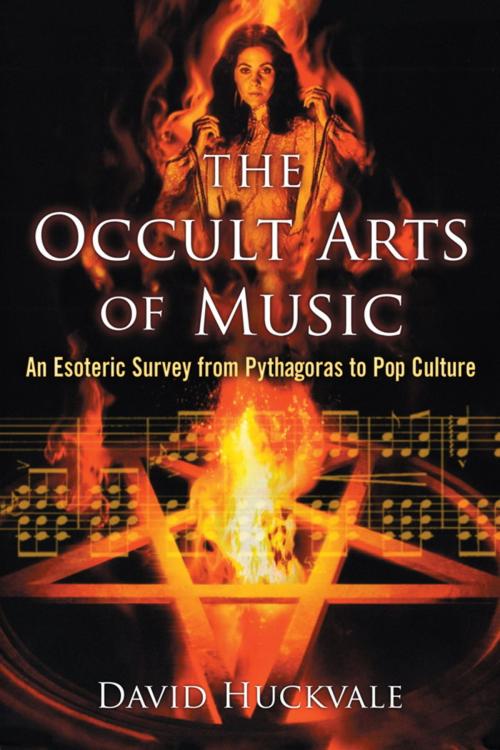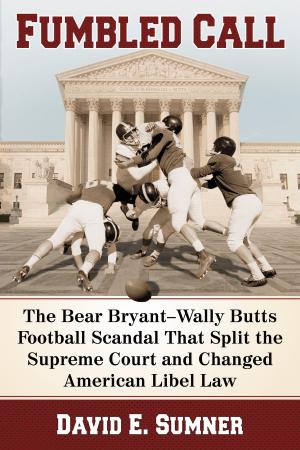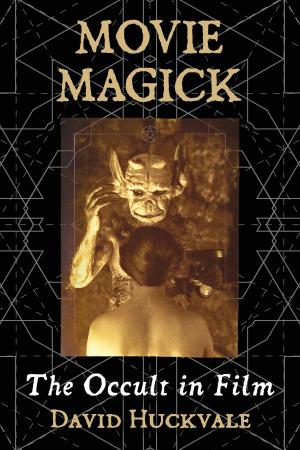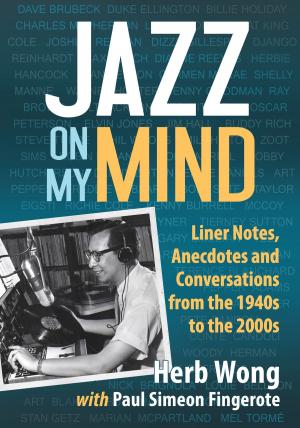The Occult Arts of Music
An Esoteric Survey from Pythagoras to Pop Culture
Nonfiction, Social & Cultural Studies, Social Science, Cultural Studies, Popular Culture, Entertainment, Music, Religion & Spirituality| Author: | David Huckvale | ISBN: | 9781476602059 |
| Publisher: | McFarland & Company, Inc., Publishers | Publication: | September 21, 2013 |
| Imprint: | Language: | English |
| Author: | David Huckvale |
| ISBN: | 9781476602059 |
| Publisher: | McFarland & Company, Inc., Publishers |
| Publication: | September 21, 2013 |
| Imprint: | |
| Language: | English |
Occult traditions have inspired musical ingenuity for centuries. From the Pythagorean concept of a music of the spheres to the occult subculture of 20th-century pop and rock, music has often attempted to express mystical states of mind, cosmic harmony, the demonic and the divine—nowhere more so, perhaps, than in the music for films such as The Mephisto Waltz, The Devil Rides Out, Star Trek, Close Encounters of the Third Kind, The Omen and The Exorcist. This survey explores how such film music works and uncovers its origins in Pythagorean and Platonic ideas about the divine order of the universe and its essentially numerical/musical nature. Chapters trace the influence of esoteric Freemasonry on Mozart and Beethoven, the birth of “demonic” music in the 19th century with composers such as Weber, Berlioz and Liszt, Wagner’s racial mysticism, Schoenberg’s numerical superstition, the impact of synesthesia on art music and film, the effect of theosophical ideas on composers such as Scriabin and Holst, supernatural opera and ballet, fairy music and, finally, popular music in the 1960s and ’70s.
Occult traditions have inspired musical ingenuity for centuries. From the Pythagorean concept of a music of the spheres to the occult subculture of 20th-century pop and rock, music has often attempted to express mystical states of mind, cosmic harmony, the demonic and the divine—nowhere more so, perhaps, than in the music for films such as The Mephisto Waltz, The Devil Rides Out, Star Trek, Close Encounters of the Third Kind, The Omen and The Exorcist. This survey explores how such film music works and uncovers its origins in Pythagorean and Platonic ideas about the divine order of the universe and its essentially numerical/musical nature. Chapters trace the influence of esoteric Freemasonry on Mozart and Beethoven, the birth of “demonic” music in the 19th century with composers such as Weber, Berlioz and Liszt, Wagner’s racial mysticism, Schoenberg’s numerical superstition, the impact of synesthesia on art music and film, the effect of theosophical ideas on composers such as Scriabin and Holst, supernatural opera and ballet, fairy music and, finally, popular music in the 1960s and ’70s.















